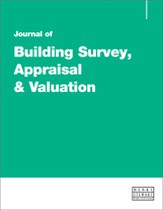Recent legislation in building conservation and its impact on building surveying for traditional buildings
Abstract
Changes to heritage protection policy contained in the National Planning Policy Framework (2012) and the Enterprise and Regulatory Reform Act (2013) follow a decade of historic environment policy reform. Significance-based assessments are now the established way of measuring and managing change to heritage assets. Improvements in the way protected places are designated, and how changes are recorded, have streamlined the listed building consent process. Within the heritage sector, there is an appetite for further reform, to ensure the best of our built heritage is sustained and enjoyed for its contribution to our culture.
The full article is available to subscribers to the journal.
Citation
Jubb, Lynda (2014, April 1). Recent legislation in building conservation and its impact on building surveying for traditional buildings. In the Journal of Building Survey, Appraisal & Valuation, Volume 3, Issue 1. https://doi.org/10.69554/VVRG1587.Publications LLP
